Cats have lengthy intrigued us with unusual behaviors. One of many extra uncommon and sometimes perplexing behaviors that some cats exhibit is the act of biting their proprietor’s ears. Whereas cats are identified for his or her enigmatic nature and instinctive habits, ear-biting can go away many questioning concerning the underlying causes behind this explicit habits.
To feed your curiosity, we’ll look into the doable causes that may drive a cat to nibble or chunk an proprietor’s ears! Understanding the motivations behind ear-biting not solely helps foster a deeper connection between cats and their human companions but additionally ensures the well-being and concord of the feline-human relationship!

Is This Thought of Regular Habits?
Ear-biting habits in cats is just not sometimes thought of regular, on a regular basis habits, but it surely’s additionally not inherently irregular in all instances. The habits can range relying on the context, the cat’s character, and the connection between the cat and its proprietor.
It’s important to judge the habits within the context of your particular cat’s general well being and well-being and, if crucial, search steering from a veterinarian or animal behaviorist to handle any potential issues.
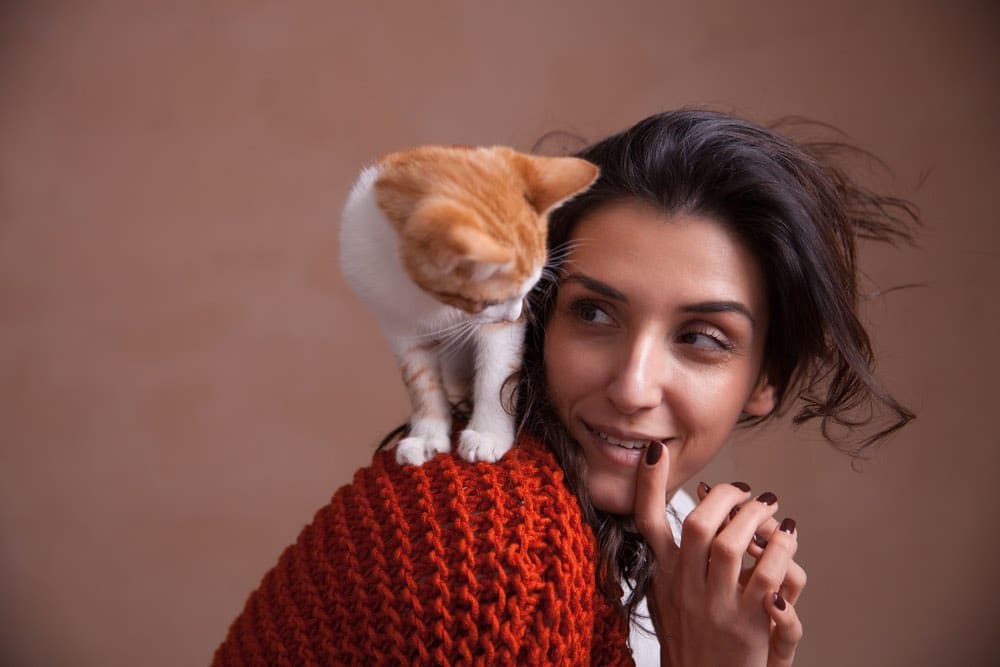

The ten Causes Why Cats Would possibly Chew Your Ear
1. They Are In search of Consideration
Cats are extremely expert at getting our consideration, and ear-biting would possibly simply be one in every of their tips. It may be seen as a means of claiming, “Hey, I’m right here, and I want some love!” Whether or not it’s a mild nip or a extra persistent chunk, this habits might be their technique of guaranteeing they’re the middle of your world.
It might develop into extra prevalent after they really feel ignored, and it’s their means of pulling you again into their orbit, looking for the love and interplay they crave.
2. Playtime!
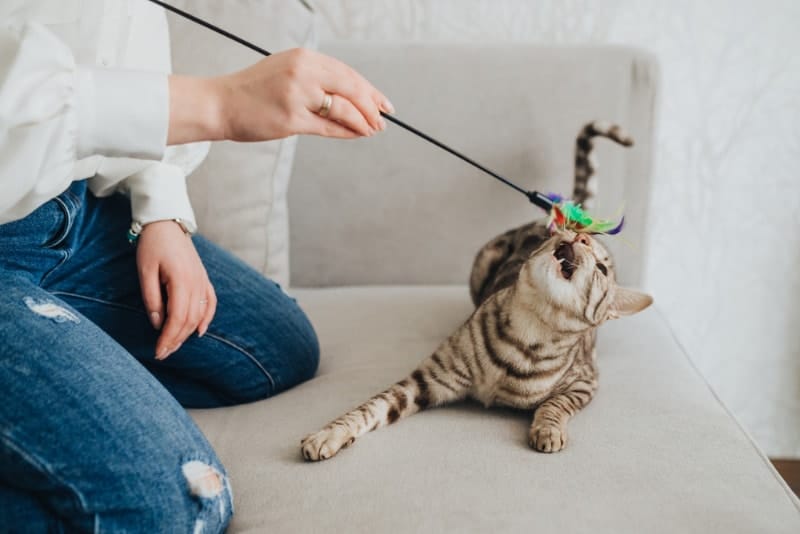
Cats are pure hunters, and their play habits usually includes stalking, pouncing, and sure, a little bit of biting. Your ears might be a pretty goal, particularly while you’re transferring or fidgeting, mimicking the motion of prey.
It’s important to differentiate between playful bites and extra aggressive habits, as understanding their play indicators might help preserve a optimistic and gratifying playtime expertise for each you and your feline buddy.
3. Present of Affection
Consider it or not, some cats exhibit their love by gently nibbling on their proprietor’s ears. This can be a signal of belief and luxury, the place your cat would possibly see you as an extension of their household and even as a possible mate. Although it might be an uncommon show of affection, it’s their distinctive means of bonding with you and displaying that they really feel safe in your presence.
4. They Just like the Scent of Earwax
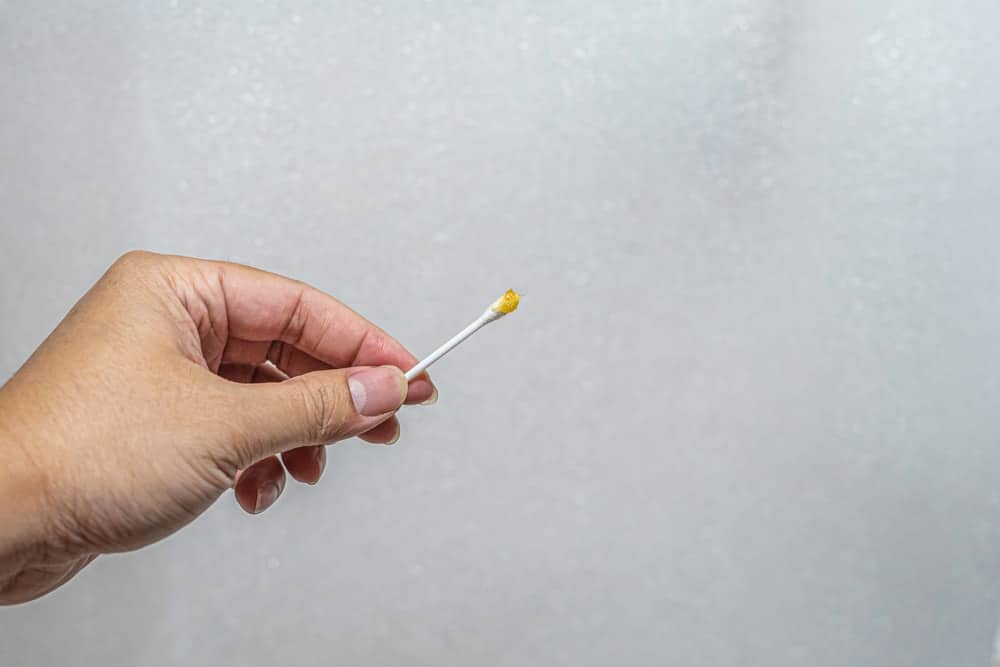
Cats have an extremely eager sense of scent, and so they’re naturally drawn to scents and odors. The scent of earwax could be intriguing to them, and so they might nibble your ears merely out of curiosity. It’s not essentially an indication of affection or something deeper; it’s simply your cat’s means of exploring the world by means of their sense of scent.
5. Grooming Habits
Cats are meticulous self-groomers, and so they might lengthen this habits to their human companions. Biting your ears might be their means of mimicking their grooming routine or displaying affection by ‘grooming’ you. This habits is extra frequent after they really feel notably comfy and safe in your presence.
6. Starvation
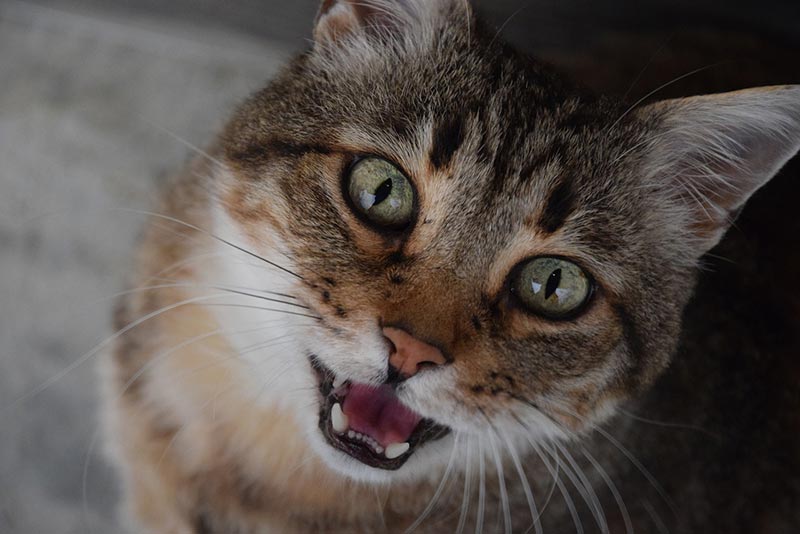
Cats might be fairly vocal about their wants, and ear-biting would possibly function a communication technique for conveying their starvation. In the event that they’ve related ear-nibbling with getting fed or receiving treats prior to now, they might do this tactic to immediate you to offer them with meals.
7. Establishing Territory
Cats are territorial animals, and a few might use biting as a strategy to set up dominance or possession over you. That is particularly frequent in multi-cat households, the place they might be asserting their dominance over you and different cats, marking you as their territory.
8. Stress and Anxiousness
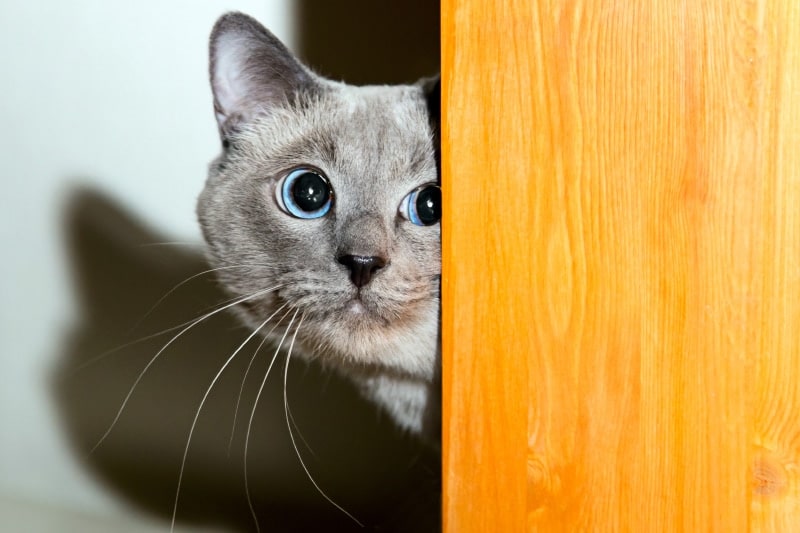
Consider it or not, cats are very prone to emphasize particularly when there’s change of their quick setting. Like people, cats can generally act out after they’re pressured or anxious. Biting, together with ear-biting, might be an outlet for his or her anxiousness, or it could be a means of expressing their discomfort. It can be an indication of overstimulation throughout petting, a second after they’re telling you that they want a break.
9. They Have been Separated from Their Mom Too Early
Kittens be taught essential social behaviors from their mom and siblings, together with chunk inhibition. If a kitten is separated from their mom too early, they might not have realized learn how to management their chunk. Consequently, they could exhibit inappropriate biting behaviors later in life, which might embody ear-nibbling.
10. Underlying Medical Points
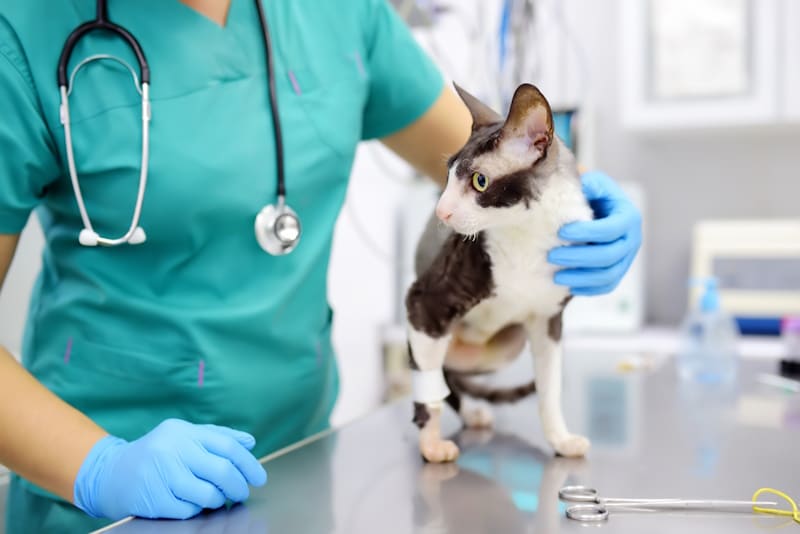
When a cat displays uncommon biting habits, particularly if it’s painful or aggressive, it’s important to contemplate the potential for underlying medical points.
Ache or discomfort of their mouth because of dental issues or medical circumstances may result in this habits as they try to alleviate their discomfort or talk their ache. In case your cat’s biting habits is regarding, it’s advisable to seek the advice of a veterinarian to rule out any medical points.

When Ought to I Be Involved?
You ought to be involved about your cat’s ear-biting habits when it turns into frequent, painful, or aggressive, or if it’s accompanied by different regarding indicators. Frequent ear-biting, particularly if it leads to damage or ache, can point out underlying points equivalent to stress, dental issues, or medical circumstances.
In case your cat turns into more and more aggressive throughout ear-biting, it’s essential to handle the habits promptly to make sure the security of each you and your cat. If this habits is a brand new growth or is accompanied by different uncommon or distressing behaviors, it might point out an underlying drawback that requires consideration.
When doubtful, consulting with a veterinarian or an expert animal behaviorist might help establish the trigger and supply steering on learn how to handle the difficulty, guaranteeing the well-being of your feline companion.

Conclusion
We’ve explored the ten doable causes behind the peculiar habits of cats biting your ear. It turns into evident that cats, very similar to people, categorical themselves in a large number of how. As accountable cat dad and mom, it’s essential to familiarize ourselves with our cat’s distinctive personalities and typical behaviors.
Whereas some ear-nibbling is an endearing signal of affection or a playful gesture, it’s important to acknowledge when this habits turns into extreme, painful, or aggressive, as it might sign underlying considerations equivalent to stress, dental issues, or well being points.
Understanding the motivations behind ear-biting additional strengthens the bond between people and their furry pals. By being attuned to the subtleties of feline communication, we will guarantee a harmonious and blissful coexistence with these extraordinary animals!
Featured Picture Credit score: Olesya Kuznetsova, Shutterstock



